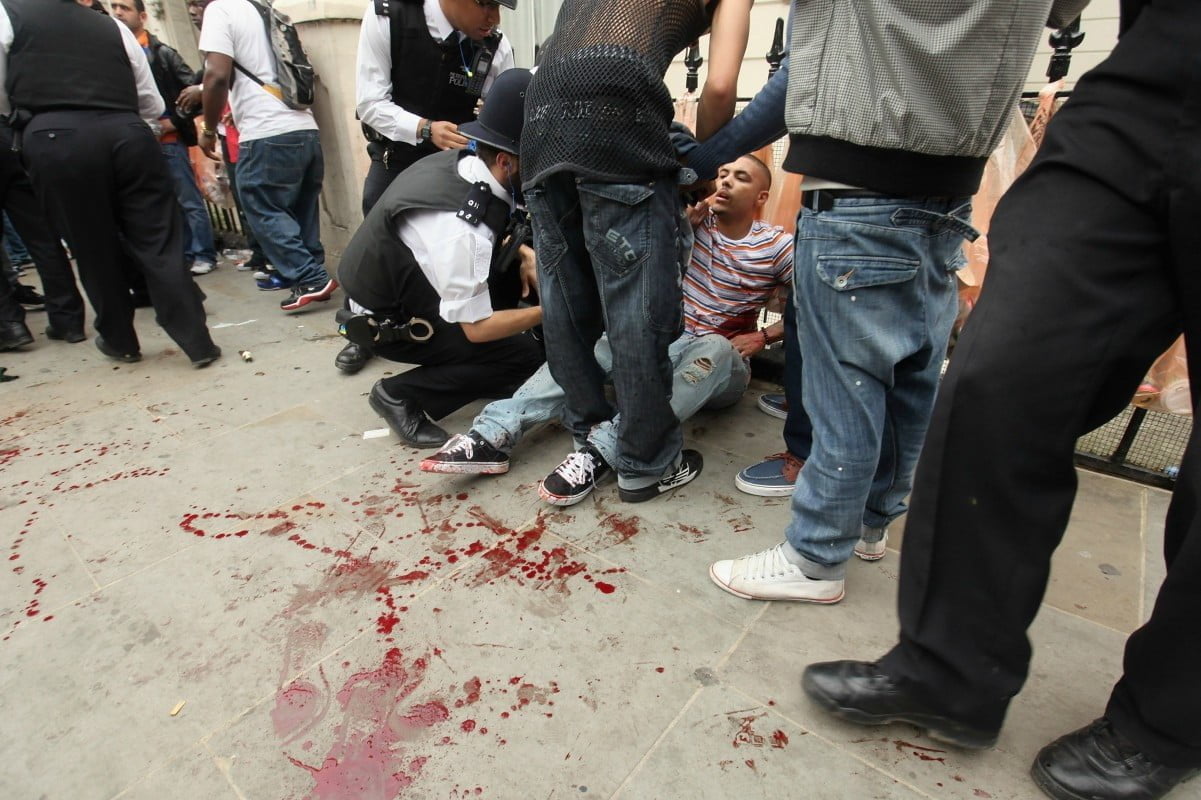Violent crime is on the up: the impact of society’s stagnation and a blight on working class communities. But more police on the streets is not the solution.
The current knife crime epidemic in Britain’s towns and cities has become the most visible feature of a cancerous growth of violence in our communities, as austerity and the effects of capitalist crisis cut deep.
Knife crime has now reached its highest level since 2010. Attention has centred on London, where there has been a 16% rise in such crimes since last year, with 15,000 knife incidents being reported.
This year there have been 121 murders in London to date – more than the whole of 2017. Four-in-ten victims were 24 or younger. Indeed, London now sees more violence per person than the rest of the UK.
But this is not just about London. Across the rest of England and Wales, knife crime has increased by a third since 2010. Areas around Sheffield, Leeds and Liverpool have all seen spiralling increases, as well as North Wales, Norfolk and Essex. Knife crime in Manchester has increased by 34% in just one year.
Heartless fight for survival
Violent crime – knife and violent assault; gang-related and domestic – is a devastating blight on working class communities. The victims are predominantly working class young men, many of them teenagers and many of them black. All this exposes the indefensible violence at the heart of capitalist society, which ordinary people suffer the consequences of.
What is the cause? One factor is an increase in the supply of crack cocaine, leading city gangsters to expand into smaller towns. Monopoly control in the drug trade is inescapable, just as we see in the ‘legal’ economy.
But fundamentally, violent crime stems from the poverty and deprivation caused by capitalist crisis and exploitation.
Faced with a complete lack of opportunities for secure employment and spiraling costs of living, many young people have turned to the drug trade and gang crime out of desperation. Austerity has decimated community services and prevention programmes, leaving people isolated.
Crime grows like a cancer, feeding off this alienation and the heartless fight for survival. Exploitative gangs – operating like businesses aiming to maximise profits just like any other – offer a chance of easy money.
Capitalism’s cycle of violence
 The ruling class, meanwhile, couldn’t care less. Their safety, and property, remain untouched, while working class people die in the street fighting over scraps.
The ruling class, meanwhile, couldn’t care less. Their safety, and property, remain untouched, while working class people die in the street fighting over scraps.
In fact, this crime provides a convenient way of dividing the working class, while offering a bogeyman to justify increases in the repressive apparatus of the state. A report by the Centre for Social Justice (a right-wing think tank co-founded by Tory Iain Duncan Smith) has already called for an increase in racist stop-and-search tactics by the police.
Corbyn’s Labour has linked the rise in crime rates to Tory cuts of more than 20,000 police officer positions (15% of the force) since 2010.
Whilst it is true that police cuts have had an adverse effect on crime rates, more police is not the answer. Instead of actually protecting people and reducing crime, the police are merely trapped in an endless futile battle with low-level criminals. In the final analysis, their real job is to protect private property.
More police would simply mean further criminalisation of working class and ethnic minority communities, who are themselves the unprotected victims of most violent crime.
The only way to reduce the blight of violent crime is to tackle its root causes – the social problems of austerity, deprivation, and alienation, which ultimately stem from capitalism.
In order to wrestle our communities away from the criminals – the bosses, legal or illegal – we need to provide decent jobs and housing for all. This means taking collective and democratic ownership over our communities, and over wider society. And this means building socialism.






